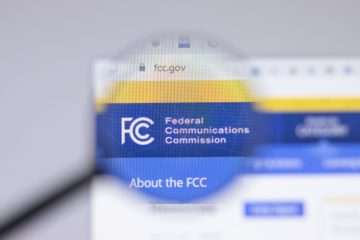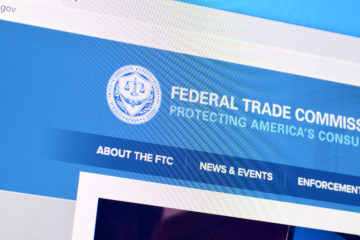The Market Institute Senior Fellow John Tamny has a new piece out in Real Clear Markets looking at the Federal Trade Commission’s recent lawsuit against Meta (Facebook).
“At the dawn of the 20th century it was said that cars were rarer than millionaires. And millionaires were, of course, very rare.
Thinking about cars, how fortunate it was that at least they existed. Better yet, how very fortunate that the ones in existences carried enormous price tags. What a brilliant market signal. A crucial one. That a small sliver of the most elite of elites could claim ownership of an automobile signaled a car-abundant future. Think about it.
Someone’s got to establish worth for luxuries, and the wildly rich do this for us every day. Acting as “venture buyers,” what they uniquely use and own on the way to greater comfort, health or betterment acts as a lure for entrepreneurs. They know great wealth will be their reward if they can mass produce what vanishingly few own.
All of this is worth keeping in mind as FTC Chairwoman Lina Khan works to make her mark at the federal bureaucracy. Khan’s goal is to kneecap businesses in pursuit of their own betterment.
Most recently Khan’s FTC sued to put a barrier in place of Meta’s (Facebook) acquisition of technology company Within. The VR darling can lay claim to “Supernatural,” which is a very popular workout game.
The expressed reasoning from the FTC is that the “lessening of competition” that would allegedly spring from the acquisition “may result in reduced innovation, quality, and choice,” and that “Meta would be one step closer to its ultimate goal of owning the entire ‘Metaverse.’” It’s hard to know where to begin.
Up front, as evidenced by the halving of Meta’s stock price, it’s apparent that actual market actors with true skin in the game aren’t as impressed with Meta’s future as Khan is. As the falling valuation seems to indicate, investors aren’t even sure that Meta will continue to dominate social media, let alone a commercial future that presently cannot be defined. Quick, define the metaverse! Ask Khan to define it. How much do you want to bet that Khan would struggle to explain tomorrow, at which point there probably aren’t enough 9s after 99.9 to properly convey the percentage of the existing population that doesn’t understand what the metaverse is. Assuming an ability to define it, arguably an even smaller number knows how it will shape the future, assuming it will.
See Meta’s stock price once again if you’re unsure about the metaverse’s role in what’s ahead. As evidenced yet again by its halving, either investors aren’t sure if the metaverse is the future; that, or they’re not sure if Meta is the company that will take us to it. If so, this is no way insults Meta, Mark Zuckerberg, or both. The reality is that Facebook on its own was and is a miracle. To expect that Meta and Zuckerberg have another miracle up their sleeve is asking a lot. That’s the case because the shapers of tomorrow’s commercial outlook will do so by seeing and implementing remarkable leaps in how we do things; leaps that in all likelihood do not resemble the present.
Change is hard. That it’s hard explains why most start-ups fail. This is no different than when established commercial giants try to pivot. Most often they fail too. Bill Gates once observed that something like 90% of his commercial endeavors at Microsoft didn’t work. Meta could be spending billions, and tens of billions, on a proverbial dry hole.
Which brings us back to Khan, and her efforts to block Meta’s acquisition of Within. She claims noble intentions, that she’d prefer Meta to not own “the entire ‘Metaverse.’” The arrogance of such a statement is astounding. What “Metaverse”? Does Khan really think she knows what it is, and what it will be? It’s embarrassing to even ask such a question. All the evidence we need to know that Khan hasn’t a faint clue about the Metaverse is the work she’s doing today. Put another way, if Khan’s opinion about the future had any validity she’d have billions of dollars backing her rather knowledgeable leap into an intensely lucrative tomorrow. Except that she doesn’t. Khan is a salary-taking federal bureaucrat. No doubt she’s smart, but her career path signals a mind that no one would mistake for creative. Yes, Khan is constrained by the known. She’s in no way positioned to opine on who will dominate the future, and she’s certainly not positioned to know what that future will be.
All of which speaks to how dangerous Khan’s lawsuit is. Up front, the future of commerce won’t happen; rather it will be created. That it will be created explains why it’s so important that Meta not be blocked in its efforts to put tens of billions to work creating what’s ahead. Precisely because Meta is flush with cash right now, it uniquely has the funds to drill all manner of holes; most of them surely dry ones. If Meta is blocked by Khan, the arrival at tomorrow will logically be delayed. Investment produces information.”
Read the full article at Real Clear Markets by clicking here.


